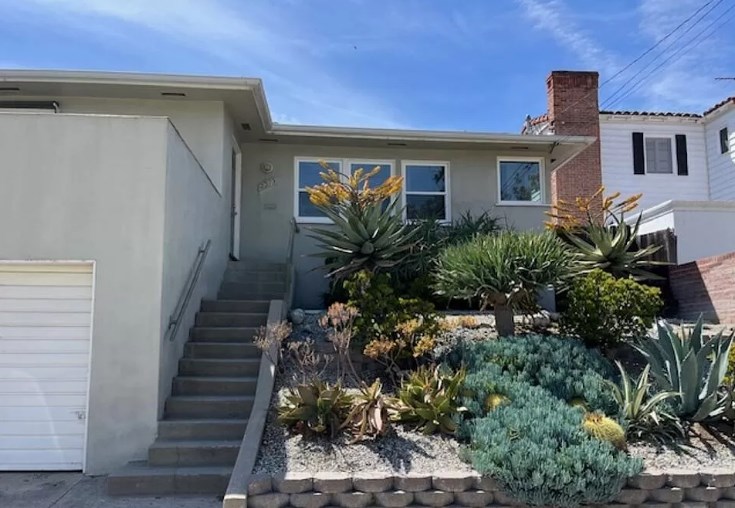
Private Landlord Properties – Private landlord properties refer to rental properties that are owned and managed by individual property owners, as opposed to property management companies. Renting from a private landlord can offer a different experience compared to renting from a property management company. While both options have their advantages and disadvantages, it is important to understand the unique aspects of renting from a private landlord.
When renting from a private landlord, tenants often have the opportunity for more personalized attention and communication. Unlike property management companies that handle multiple properties and tenants, private landlords typically have fewer properties to manage. This means that they can dedicate more time and attention to their tenants’ needs and concerns. Additionally, direct communication with the landlord can be easier and more efficient, as there are no intermediaries involved.
Flexibility in lease terms and negotiations is another advantage of renting from a private landlord. Property management companies often have strict policies and standardized lease agreements that leave little room for negotiation. On the other hand, private landlords may be more open to discussing lease terms and making adjustments based on individual circumstances. This flexibility can be particularly beneficial for tenants who have specific needs or preferences.
Furthermore, renting from a private landlord may offer the potential for lower rent and fees. Property management companies often charge higher rents and additional fees to cover their overhead costs and profit margins. Private landlords, on the other hand, may have lower expenses and may be more willing to negotiate rent prices. This can be advantageous for tenants who are looking to save money on their monthly housing expenses.
Advantages of Renting from a Private Landlord
One of the main advantages of renting from a private landlord is the personalized attention and communication that tenants receive. Private landlords typically have fewer properties to manage compared to property management companies, allowing them to focus more on individual tenant needs. This means that tenants are more likely to receive prompt responses to their inquiries or concerns, as well as a higher level of customer service.
Flexibility in lease terms and negotiations is another advantage of renting from a private landlord. Unlike property management companies that often have strict policies and standardized lease agreements, private landlords may be more open to discussing and adjusting lease terms based on individual circumstances. This can be particularly beneficial for tenants who have specific needs or preferences, such as the desire for a shorter lease term or the ability to have pets.
Additionally, renting from a private landlord may offer the potential for lower rent and fees. Property management companies often charge higher rents and additional fees to cover their overhead costs and profit margins. Private landlords, on the other hand, may have lower expenses and may be more willing to negotiate rent prices. This can be advantageous for tenants who are looking to save money on their monthly housing expenses.
Disadvantages of Renting from a Private Landlord
While there are advantages to renting from a private landlord, there are also some potential disadvantages that tenants should be aware of. One of the main disadvantages is limited resources and support. Property management companies often have dedicated maintenance staff and resources to handle repairs and maintenance issues promptly. In contrast, private landlords may not have the same level of resources or support, which can result in delays or inconsistencies in addressing maintenance requests.
Inconsistent maintenance and repairs can be another disadvantage of renting from a private landlord. Without the same level of resources as property management companies, private landlords may struggle to address maintenance issues promptly. This can lead to frustration for tenants who rely on their landlord to maintain the property in good condition. Tenants need to communicate their concerns clearly and document any unresolved issues to protect their rights as renters.
Furthermore, there is a potential for unprofessional behavior or disputes when renting from a private landlord. While many private landlords are professional and responsible, there are cases where tenants may encounter unprofessional behavior or disputes with their landlords. This can range from issues such as privacy violations to disagreements over lease terms or rent payments. It is important for tenants to be aware of their rights and responsibilities as renters and to seek legal assistance if necessary to resolve any disputes.
How to Find Private Landlord Properties
Finding private landlord properties can be done through various methods. One of the most common ways is by searching online listings and classifieds. Websites such as Craigslist, Zillow, and Rent.com often have a wide range of rental listings, including those from private landlords. These platforms allow tenants to filter their search based on location, price range, and other preferences, making it easier to find suitable properties.
Word of mouth and networking can also be effective in finding private landlord properties. Asking friends, family, and colleagues if they know of any available rentals can lead to potential leads. Additionally, joining local community groups or online forums dedicated to housing can provide valuable information and connections with private landlords in the area.
Local property owner associations can also be a valuable resource for finding private landlord properties. These associations often have directories or databases of rental properties owned by their members. Contacting these associations or attending their meetings can provide access to a network of private landlords who may have available properties.
Understanding the Rental Agreement with a Private Landlord
When renting from a private landlord, it is crucial to thoroughly understand the rental agreement before signing it. The rental agreement is a legally binding contract that outlines the rights and responsibilities of both the tenant and the landlord. It is important for tenants to carefully review the agreement and seek clarification on any terms or clauses that are unclear.
Key terms and clauses to look for in a rental agreement include the duration of the lease, rent amount and payment schedule, security deposit requirements, pet policies, maintenance responsibilities, and termination conditions. Understanding these terms will help tenants know what is expected of them during their tenancy and avoid any misunderstandings or disputes.
Both tenants and landlords have legal rights and responsibilities that are outlined in the rental agreement. Tenants are entitled to privacy, a secure and livable environment, and immunity from discrimination. Landlords have the right to receive rent payments on time, access the property for inspections or repairs with proper notice, and enforce lease terms. Both parties need to be aware of these rights and responsibilities to ensure a smooth tenancy.
Clear communication and documentation are essential when renting from a private landlord. Tenants need to communicate any concerns or issues promptly and in writing to ensure that there is a record of the communication. This can help protect tenants’ rights and provide evidence in case of disputes. Similarly, landlords should communicate any changes or updates regarding the property or lease terms in writing to avoid misunderstandings.
Negotiating Rent with a Private Landlord
Rent negotiation is often possible when renting from a private landlord. To negotiate rent effectively, tenants should research market rates and comparable properties in the area. This will provide them with an understanding of the current rental market and help them determine if the asking rent is reasonable.
When negotiating rent, tenants should present a strong case for lower rent or concessions. This can include highlighting their positive rental history, stable income, or willingness to sign a longer lease term. Tenants need to be respectful and professional during negotiations to maintain a positive relationship with the landlord.
Maintaining a positive relationship with the landlord is crucial throughout the tenancy. This can be achieved by paying rent on time, following lease terms, and communicating effectively. Building trust and rapport with the landlord can make future negotiations or requests for repairs more successful.
Maintenance and Repairs in Private Landlord Properties
Maintenance and repairs are an important aspect of renting from a private landlord. To ensure that maintenance issues are addressed promptly, tenants should establish expectations and procedures for repairs with their landlord. This can include discussing the preferred method of communication for reporting maintenance issues and the expected response time from the landlord.
When reporting maintenance issues, tenants should communicate effectively with the landlord. It is important to provide clear and detailed information about the problem, including any relevant photos or videos. This will help the landlord understand the issue and take appropriate action.
In some cases, tenants may encounter unresolved maintenance issues or disputes with their landlord. If communication with the landlord fails to resolve the issue, tenants may need to involve legal or regulatory authorities. This can include contacting local housing authorities or seeking legal assistance to protect their rights as renters.
Dealing with Disputes with a Private Landlord
Disputes with a private landlord can arise for various reasons. Common sources of conflict include disagreements over lease terms, rent payments, maintenance responsibilities, or privacy violations. When faced with a dispute, tenants need to remain calm and professional throughout the process.
Seeking mediation or legal assistance can help resolve disputes with a private landlord. Mediation involves a neutral third party who helps facilitate communication and negotiation between the tenant and landlord. This can be a cost-effective and efficient way to resolve disputes without going to court.
In some cases, legal assistance may be necessary to protect tenants’ rights and resolve disputes. This can involve consulting with an attorney who specializes in landlord-tenant law or filing a complaint with local housing authorities. Tenants need to document any evidence related to the dispute and keep records of all communication with the landlord.
Maintaining professionalism and respect throughout the dispute-resolution process is crucial. This will help preserve the tenant’s reputation and ensure that their rights are protected. It is important to remember that disputes can be stressful and emotionally charged, but maintaining a professional demeanor will lead to a more favorable outcome.
Security and Safety in Private Landlord Properties
Security and safety are important considerations when renting from a private landlord. It is the duty of landlords to give their renters a safe and secure living space. This includes ensuring that the property meets all applicable safety codes and regulations, such as having functioning smoke detectors and secure locks on doors and windows.
Tenants also have a role to play in maintaining their security and safety. This can include taking personal precautions such as locking doors and windows, not sharing personal information with strangers, and being aware of their surroundings. Tenants should also report any security concerns or suspicious activities to their landlord or local law enforcement.
In situations where there is an immediate threat to safety, tenants should not hesitate to involve law enforcement or emergency services. This can apply to incidents like fire crises, break-ins, and domestic abuse. Tenants need to know the emergency contact information for their local law enforcement agency and have a plan in place for emergencies.
Tips for a Successful Tenancy with a Private Landlord
To have a successful tenancy with a private landlord, it is important to build a positive relationship with the landlord. This can be achieved by paying rent on time, following lease terms, and communicating effectively. Being respectful and considerate of the landlord’s property will help maintain a positive rapport.
Effective communication is key to a successful tenancy. Tenants should communicate any concerns or issues promptly and in writing to ensure that there is a record of the communication. This can help protect tenants’ rights and provide evidence in case of disputes.
Maintaining the property in good condition is also important when renting from a private landlord. Tenants should follow lease terms regarding cleanliness, maintenance responsibilities, and any restrictions on alterations or modifications to the property. Taking care of the property will not only help maintain a positive relationship with the landlord but also ensure that the tenant receives their security deposit back at the end of the tenancy.
Is Renting from a Private Landlord Right for You?
In conclusion, renting from a private landlord has its advantages and disadvantages. It offers personalized attention and communication, flexibility in lease terms and negotiations, and potentially lower rent and fees. However, there may be limited resources and support, inconsistent maintenance and repairs, and the potential for unprofessional behavior or disputes.
To find private landlord properties, tenants can utilize online listings and classifieds, word of mouth and networking, or local property owner associations. Understanding the rental agreement is crucial to protect tenants’ rights and responsibilities. Negotiating rent can be possible with a private landlord by researching market rates and presenting a strong case.
Maintenance and repairs should be addressed by establishing expectations and procedures with the landlord. Disputes can be resolved through mediation or legal assistance if necessary. Security and safety are important considerations, with both landlords and tenants having responsibilities in this area.
To have a successful tenancy with a private landlord, tenants should build a positive relationship, communicate effectively, and maintain the property. Ultimately, the decision to rent from a private landlord depends on personal preferences and priorities. By weighing the pros and cons and considering individual circumstances, tenants can make an informed decision that suits their needs.




2 comments
Pingback: Private Landlord Search - House For Rent Near Me
Pingback: Any Private Landlords Renting - House For Rent Near Me